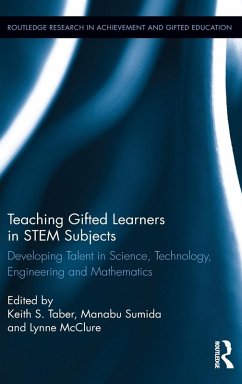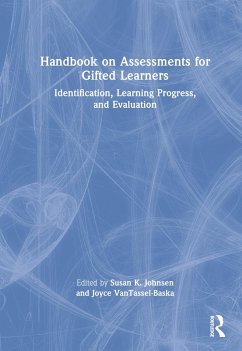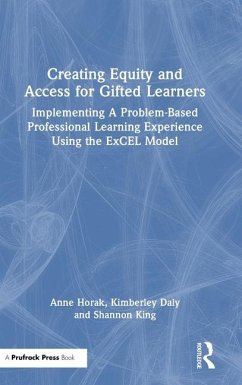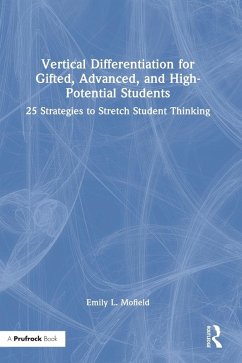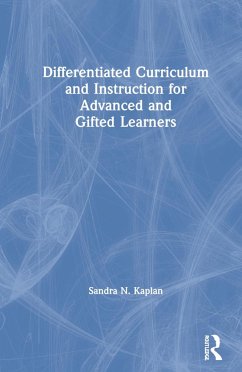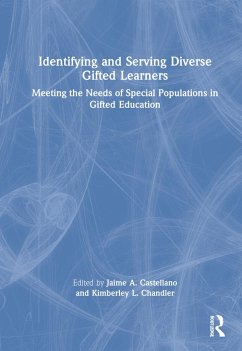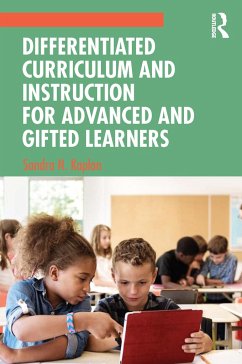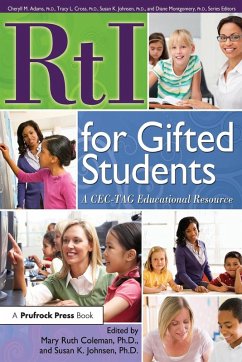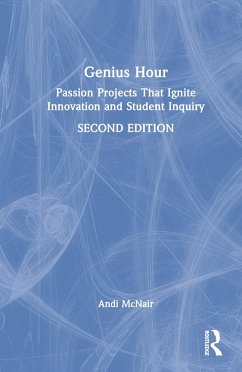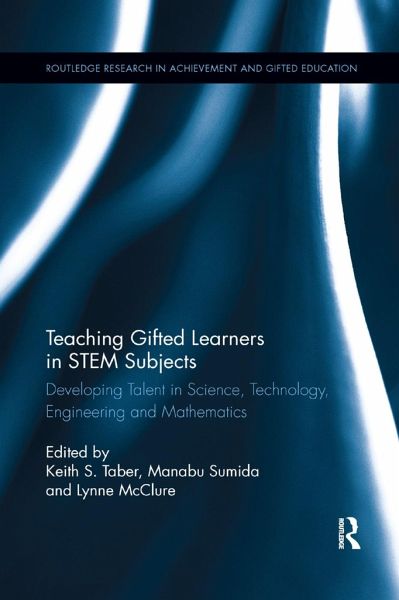
Teaching Gifted Learners in STEM Subjects
Developing Talent in Science, Technology, Engineering and Mathematics
Herausgeber: Taber, Keith S.; Mcclure, Lynne; Sumida, Manabu
Versandkostenfrei!
Versandfertig in 1-2 Wochen
57,99 €
inkl. MwSt.

PAYBACK Punkte
29 °P sammeln!
This book offers an overview of programmes designed to support the learning of gifted and talented students in STEM subjects, both to allow them to meet their potential and to encourage them to proceed towards careers in STEM areas. The chapters from a range of national contexts report on perspectives, approaches and projects in gifted education in STEM subjects. These contributions provide a picture of the state of research and practice in this area, both to inform further research and development, and to support classroom teachers in their day-to-day work. Chapters have been written with pra...
This book offers an overview of programmes designed to support the learning of gifted and talented students in STEM subjects, both to allow them to meet their potential and to encourage them to proceed towards careers in STEM areas. The chapters from a range of national contexts report on perspectives, approaches and projects in gifted education in STEM subjects. These contributions provide a picture of the state of research and practice in this area, both to inform further research and development, and to support classroom teachers in their day-to-day work. Chapters have been written with practitioners in mind, but include relevant scholarly citations to the literature. The book includes some contributions illustrating research and practice in specific STEM areas, and others which bridge across different STEM subjects. The volume also includes an introductory theoretical chapter exploring the implications for gifted learners of how 'STEM' is understood and organized within the school curriculums.





